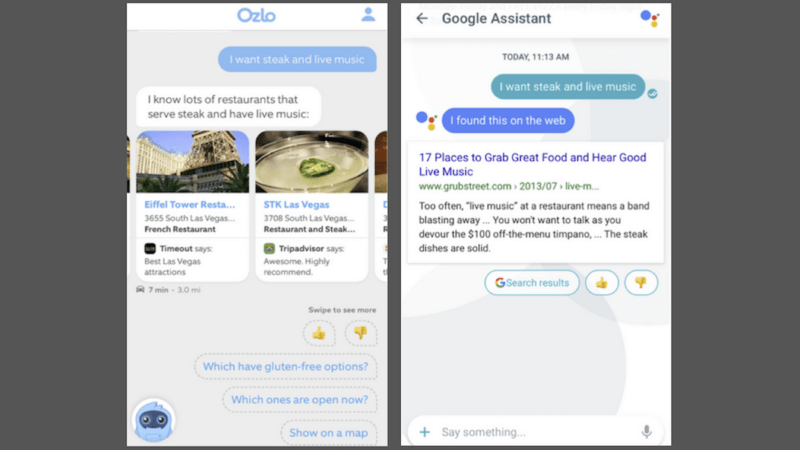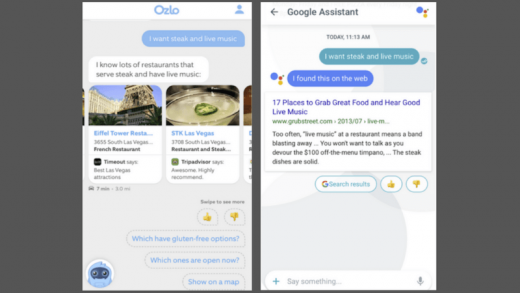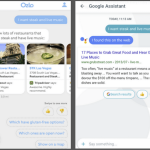Facebook’s newly purchased Ozlo may have jobs beyond Messenger
In addition to assisting/replacing the M project, Ozlo could help weed out fake news and colonize a variety of devices.

Facebook announced Monday that it was acquiring for its Messenger platform an intelligent agent called Ozlo, created by the Palo Alto, California-based company of the same name.
Deal terms for the three-year old company were not made public. But Facebook may well have plans for Ozlo beyond Messenger.
Last fall, Ozlo co-founder and CEO Charles Jolley told me that Ozlo was the only independent intelligent agent left, given that Samsung had picked up Viv.
As an agent, rather than simply a lower-level bot, Ozlo could boost or replace M, the still-in-progress intelligent agent that Facebook has been grooming for Messenger.
Jolley had described Ozlo to me as “the only assistant that can link together competing sources of information.” As an example, he recalled asking Ozlo about a place where he could get “some steak and live music” during a trip to Las Vegas.
Instead of simply calling up a Yelp recommendation or quoting an online article about local restaurants from a Las Vegas newspaper, Ozlo pulled info on steak places from a Time Out magazine story and combined that with info on live music venues from TripAdvisor.
In other words, he said, Ozlo is more than an intelligent search engine; it’s an agent that can synthesize data from multiple online sources.
The result has been the creation of a knowledge graph that Ozlo says contains “over two billion entities [that are used to] understand real-world nuances.” At one point, the Ozlo website had shown a demonstration where a typed query resulted in Ozlo searching and figuring out which of several video-stream options was the least expensive for a given TV series.
Although Ozlo was purchased specifically for Messenger, this kind of knowledge synthesis could also prove useful in Facebook’s attempt to control the flood of fake news that has made it such a battleground for Russian and other efforts to influence US elections through authentic-looking propaganda.
Because of Facebook’s huge user population and massive news feed, detecting and managing fake news requires intelligent software. But Facebook has seen the way insufficiently smart AI can exacerbate problems, such as when inappropriate — and fake — stories emerged through an AI filter into Trending Topics just before last year’s election. An agent that can synthesize knowledge to make judgments — like deciding which local steak restaurant with music is the best choice — would seem likely to help in the effort.
There’s also the possibility that Facebook may seek to fulfill Jolley’s vision for his creation: as the “dominant interface” for human-computer interaction in cars, TVs and other devices.
If so, it would compete with similar visions that Amazon, Google, Apple, Samsung and Microsoft have for their intelligent agents, as they race to colonize the world of machines and devices.
Marketing Land – Internet Marketing News, Strategies & Tips
(18)












